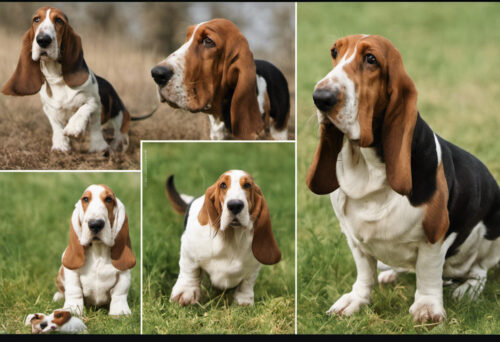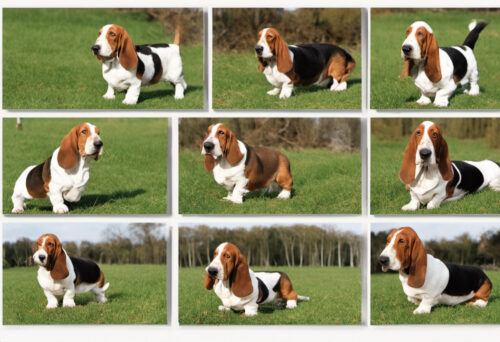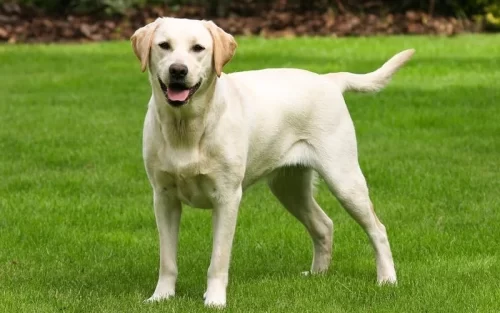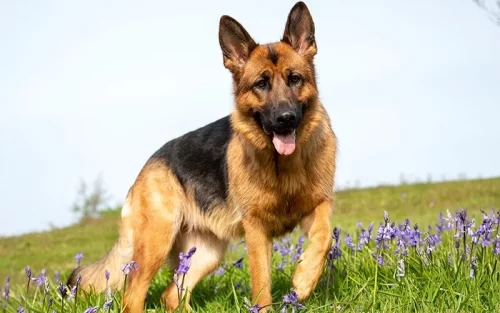When you first meet a Basset Hound, it’s easy to be taken aback by their distinct physical characteristics. From their mournful, soulful eyes to their uniquely long ears and muscular physiques, Basset Hounds are a breed like no other. You’d be forgiven for thinking that these adorable dogs are sedate, lazy couch potatoes but there’s a lot more to understand about these gentle giants. In this article, we’ll explore everything you need to know about this remarkable breed.
The History of Basset Hounds
The Basset Hound is a short-legged breed of dog, part of the hound family. Their name comes from the French word ‘Basset’, translating directly to ‘low set’, which refers to the breed’s distinctive short legs and low-lying body. Essentially, Basset Hounds were bred for this very reason – to sniff out and follow a scent trail while on the hunt.
Tracing back to their historical roots, these hounds were brought from France to Britain and then to the United States during the time of the French Revolution. With a well-documented history, those who want to delve deep into the lineage of their Bassets can do so through the Royal Canin resources.
Understanding the Personality of a Basset Hound
The Scent-Driven Soul
Basset Hounds are known for their exceptional sense of smell, arguably second only to that of a Bloodhound. This highly-developed olfactory capacity means that once a Basset has caught a scent, they can be single-minded and determined in following it. Rover’s Basset Hound Behavior Guide can help you understand this distinct personality trait better.
Gentle and Loyal Companion
Despite their hunting history, Basset Hounds are incredibly gentle and patient, making them ideally suited for families with children. They are often described as good-natured, sociable and loyal creatures who love the company of their human families and other animals alike. The Basset Hound’s Owners Community is a great source of shared experiences and advice on nurturing these gentle companions.
Caring for Your Basset Hound
Having a Basset Hound as part of your family means you’ll need to consider their specific care requirements. These gentle giants are prone to certain health issues that are unique to their breed, including ear infections, obesity and orthopedic problems. Ideally, you’ll want to familiarise yourself with this prior to adopting a Basset Hound, and resources like Your Purebred Puppy provide essential tips and pointers.
This, friends, is just the tip of the iceberg. In the next part of our guide, we’ll dive deep into the training, exercise and nutrition needs of Basset Hounds, so you can ensure they live a long, happy, and healthy life. Be basset-prepared!

Training your Basset Hound
When it comes to training, Basset Hounds can be somewhat stubborn. Remember, they were historically scent hounds which predisposes them to be independent thinkers. Start training at a young age and be consistent with your methods. Follow the advice given on the American Kennel Club for a well-behaved and obedient Basset Hound.
House-Training
Basset Hounds can be house-trained but patience is key. Regular nature calls and positive reinforcement will go a long way in making this an easier task. For practical tips on making this process smoother, check out Pedigree’s house-training guide.
Exercise Needs of a Basset Hound
Even though they may seem laid-back, Basset Hounds require moderate exercise to stay healthy and combat obesity, a common issue within the breed. Standard outlets for this breed’s energy include walks, scent tracking, and light play. As a breed suited to tracking, providing a fenced-off area where they can sniff and explore can work wonders. Cesar’s Way provides a comprehensive guide to understanding and fulfilling your dog’s exercise needs.
Nurturing a Basset Hound’s Diet
Basset Hounds love food, probably a bit too much! As a dog parent, it’s important to regulate their diet to prevent overeating and obesity. Feed a balanced diet high in proteins and low in fats. If you’re exploring options for food brands, consider PetMD’s suggestions and always consult with your vet.
Final Words from a Basset Hound Owner
Basset Hounds are undeniably unique – from their appearance to their demeanor. If you’re looking for a family pet with a mellow, laid-back vibe, you would be hard-pressed to find a better choice. With your love and care and using resources like the Daily Barker, you will have an amazing journey of companionship with these gentle giants.
That brings us to the end of our guide, dear readers. As dense as this information might seem, always remember that every Basset Hound is unique. What works for one might not work for another. So, while understanding the general traits of the breed is a great first step, getting to know your Basset as an individual is key. Here’s to a long, playful and wonderful life with your hound!

The Affectionate Side of a Basset Hound
A Basset Hound is nothing short of a wellspring of love and affection. Infamous for their languid expressions and casual attitude, these hounds are often misunderstood for being aloof, when in reality, they relish human companionship, thriving on the love and adoration they receive. To learn more about their affectionate, and at times, humorous antics, Better Homes & Gardens has a fantastic resource dedicated to unravelling the heartwarming nature of these dogs.
Managing Basset Hound Health
Keeping those Iconic Ears Healthy
As charming and distinctive the Basset Hound’s lengthy ears may be, they do require consistent attention for cleanliness. These floppy ears do not allow much ventilation, creating a somewhat humid environment, ripe for bacterial growth. For this reason, frequent cleaning is essential. The Vet Street guide on cleaning your dog’s ears can be enormously helpful in maintaining your Basset’s ear health.
Keeping a Check on their Weight
Obesity is common in Basset Hounds, a consequence of their love for meals and inherent predisposition to weight gain. It’s important to weigh your Basset regularly, and manage their meal portions to ensure optimum health. Regular vet checks can prove beneficial to keep their weight in check. Consider VCA Animal Hospital’s resource on canine obesity for more guidance.
Socializing Your Basset Hound
Socializing your Basset Hound from an early age is crucial. Regular interaction with others will aid in establishing their friendly nature and prevent them from becoming overly protective or timid. Dog parks and puppy classes can be excellent social settings to introduce your Basset to. For a more detailed read on socializing your Basset, have a browse through Cesar’s Way.
Why Should You Choose a Basset Hound?
In short, Basset Hounds are a breed abounding with various charming idiosyncrasies and wonderful quirks. They’re friendly, amusing, and above all, intensely lovable. They make perfect companions, bringing delight into your life with their affable temperaments. While they do require special care owing to their different physical characteristics, the joy they bring makes it all worthwhile. If you’re still unsure, spend some time reading Petfinder’s comprehensive summary to get a clearer idea of what to expect in your life with a Basset Hound.
The incredible journey with a Basset Hound is one of understanding, experiencing their sass, and laughing at their clownish exploits all while enjoying the calming, mellow vibe they bring into your home. With the right strategies in place, maintaining their health and happiness is not an uphill task. After all, your loving care and their boundless affection make a perfect match.
Remember, though our guide gives you an all-encompassing perspective of the lovable Basset Hound, it’s your personal bond and relationship with your pooch that defines the story you’ll tell together. Time to embark on that beautiful journey of being loved by a Basset Hound!



